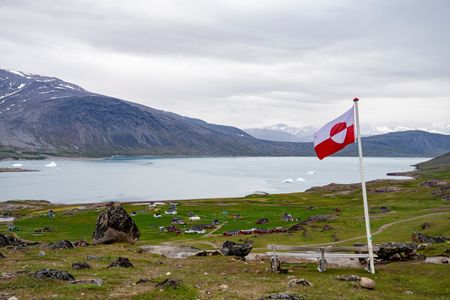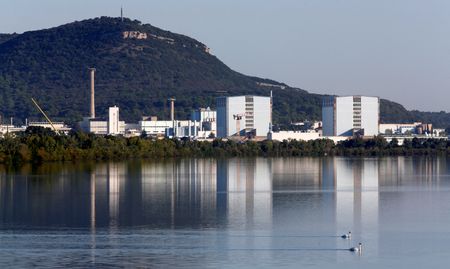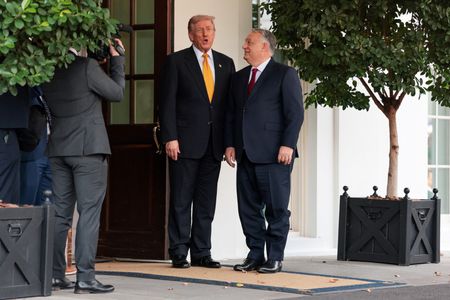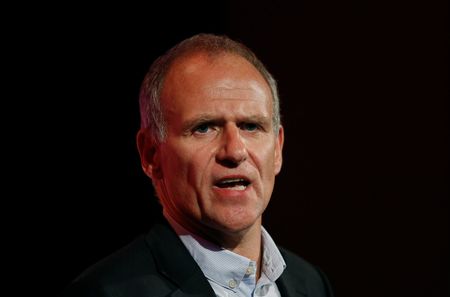By Steve Holland, Gram Slattery and Tim Reid
WEST PALM BEACH, Florida (Reuters) – U.S. President-elect Donald Trump is serious about trying to acquire Greenland, both to expand America’s sphere of influence in the Western Hemisphere and as a way to cement his legacy, according to three sources familiar with his thinking.
The Republican said on Tuesday he would not rule out using military or economic action to acquire the overseas Danish territory after he takes office on Jan. 20, startling European allies who are concerned about maintaining the inviolability of borders at a time of increased global volatility.
While Trump briefly floated the possibility of acquiring Greenland during his first term, his recent comments underline how his desire is a deep-rooted ambition – not a fleeting fancy.
One person briefed on internal discussions with Trump told Reuters that the former real estate developer is unlikely to use military force to gain control over Greenland.
Still, Trump is serious about using other means – like applying diplomatic or economic pressure on Denmark – to acquire the world’s largest island that is not a continent, the person said.
“The real legacy is you have expanded the United States,” the person said. “Literally in 70 years we haven’t added one piece of real estate to the portfolio. He talks about it a lot.”
In 1959, two U.S. territories – Alaska and Hawaii – became the 49th and 50th U.S. states under Republican President Dwight Eisenhower.
Another Trump associate recounted seeing a list of foreign policy priorities put together by top Trump officials following his victory in the Nov. 5 presidential election. One immediately stood out to him: “Buying Greenland.”
Trump has portrayed a potential Greenland acquisition as a national security imperative.
Denmark has responded to Trump’s comments by saying Greenland is not for sale. Denmark has controlled Greenland for hundreds of years although its 57,000 people now govern their own domestic affairs.
Trump advisers said they expected a shift in U.S. foreign policy resources and attention toward the Americas under a new Trump administration. Trump is suspicious of Chinese and Russian influence in the region, which he sees as essentially America’s backyard, two Trump advisers who have been involved in Latin America policy planning said.
The three current and former Trump associates who are familiar with his thinking said Trump is also interested in territorial expansion as a means of creating a lasting legacy that will be remembered for generations.
Trump has publicly floated takeovers of Greenland and the Panama Canal and the absorption of Canada in the United States in recent weeks.
“Every decision President Trump makes is in the best interest of the United States and the American people,” Karoline Leavitt, a Trump spokeswoman, said in a statement to Reuters. “That’s why President Trump has called attention to legitimate national security and economic concerns regarding Canada, Greenland, and Panama.”
TRUMP’S HERO
One of Trump’s heroes – former President William McKinley, who was in office from 1897 until his 1901 assassination – gained control of several foreign territories during his time in office, including Puerto Rico and Hawaii.
Trump, who frequently praised McKinley on the campaign trail for his use of expansive tariffs, said in December he planned to rename Denali, indigenous Alaskans’ name for North America’s tallest mountain, after the 25th president.
One Trump adviser, explaining the former president’s designs on Greenland, shared a social media post of a map of a “super U.S.,” which would include Canada and the United States.
The super U.S. would, he argued, crowd out Russian influence in the Arctic, which has become the focus of Great Power competition.
Greenland also has valuable oil, gas and mineral reserves, and is close to Arctic shipping routes. Those interests have become more pressing for U.S. policymakers in recent years as Russia and China seek to expand their influence in the Arctic region.
Greenland, part of NATO through the membership of Denmark, has strategic significance for the U.S. military and for its ballistic missile early-warning system since the shortest route from Europe to North America runs via the Arctic island. It is the location of the northernmost U.S. military base.
How Trump would go about acquiring Greenland is unclear. Some advisers close to the transition have informally discussed the possibility of signing with Greenland a Compact of Free Association, or COFA, should the island become fully independent of Denmark, Reuters reported in December.
Under a COFA, which the United States currently holds with three Pacific island countries, there is an extremely high degree of economic integration between the U.S. and the relevant foreign country, though the foreign country remains independent.
It is unclear if Trump is aware of those efforts.
A former Trump national security adviser in Trump’s 2017-2021 White House said Trump first raised the idea about buying Greenland in 2017, and then became more serious about it in 2019.
That led to a series of White House meetings with Trump where advisers gave him options about how to increase U.S. influence over Greenland. Trump was publicly rebuffed by Denmark when his ambitions became public in U.S. media reports, and his administration ultimately took no steps to try to acquire the territory.
The U.S. has sought to acquire Greenland from Denmark in the past. Denmark quietly rejected a secret bid by President Harry Truman’s administration to acquire it for $100 million in 1946.
(Reporting by Steve Holland, Gram Slattery and Tim Reid; additional reporting by Michael Martina; Editing by Ross Colvin and Alistair Bell)












